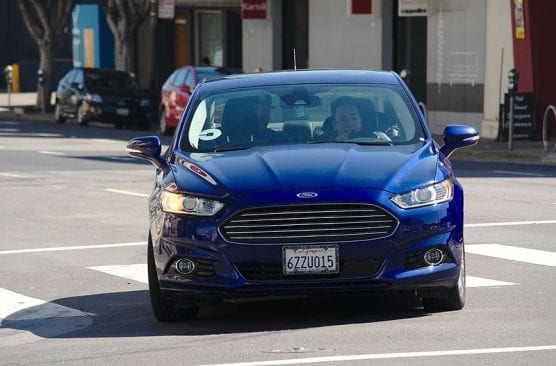The ride-hailing giants Uber and Lyft shirk state law by misclassifying their California drivers as independent contractors, according to a lawsuit filed Tuesday by the state and several cities.
Companies that rely on contract workers including Uber and Lyft mounted a campaign against Assembly Bill 5 before it was approved by the Legislature and signed by Governor Gavin Newsom in 2019. Under AB 5, contract workers are guaranteed minimum and overtime wages, workers’ compensation and other benefits regular employees receive.
In a 27-page lawsuit filed in the San Francisco County Superior Court, California Attorney General Xavier Becerra says Uber and Lyft do not compensate their drivers for time refueling, maintaining their vehicles, rest breaks and time spent monitoring the respective ride-hailing apps.
The companies “cannot provide on-demand rides without the performance of these tasks,” Becerra says in the complaint.
The companies “cannot provide on-demand rides without the performance of these tasks,” Becerra says in the complaint. Uber and Lyft also enjoy “illegitimate savings” from the benefits they do not provide the drivers and this allows them to provide their “services at an artificially low cost, decimating competitors and generating billions of dollars in private investor wealth off the backs of vulnerable drivers,” he adds.
The coalition seeks civil penalties up to $2,500 for each violation of California’s Unfair Competition Law and Business and Professions law.
The city attorneys of Los Angeles, San Diego and San Francisco joined Becerra in the lawsuit. They seek restitution for workers, a stop to the misclassification of the drivers as contract workers and civil penalties that Becerra’s office says could reach hundreds of millions of dollars.
In a statement, Becerra said Uber and Lyft deny its drivers “basic worker protections.” He also dismissed the argument that drivers are not “engaged in the companies’ core mission and cannot qualify for benefits.”
“Sometimes it takes a pandemic to shake us into realizing what that really means and who suffers the consequences,” Becerra said. “Uber and Lyft drivers who contract the coronavirus or lose their job quickly realize what they’re missing. But it’s not just these workers who lose. American taxpayers end up having to help carry the load that Uber and Lyft don’t want to accept.”
L.A. City Attorney Mike Feuer said the coalition behind the lawsuit will “fight to uphold California’s worker classification laws.”
San Francisco City Attorney Dennis Herrera said the coalition has been working for months to build its case. AB 5 took effect on Jan. 1.
During his daily coronavirus briefing on Tuesday, Governor Gavin Newsom told reporters Uber and Lyft should have seen the lawsuit coming and that the state is looking to add resources in the next state budget to enforce the classification law. He said California is “proud” to defend AB 5 and needled the companies for spending millions to try and overturn the law.
“The bill has the full effect of law and codification of a Supreme Court decision made well over a year ago,” Newsom said, referring to the California Supreme Court’s 2019 decision in Dynamex v. Superior Court, which led to AB 5. “We’re pleased the state of California is taking leadership in this space.”
The gig-economy titans have ponied up $90 million to qualify a measure for the November ballot and give voters a chance to nix the law.
In a statement, Lyft said it is “looking forward to working with the attorney general and mayors across the state to bring all the benefits of California’s innovation economy to as many workers as possible, especially during this time when the creation of good jobs with access to affordable health care and other benefits is more important than ever.”
In a statement, Uber vowed a fight.
“At a time when California’s economy is in crisis with 4 million people out of work, we need to make it easier, not harder, for people to quickly start earning,” Uber said. “We will contest this action in court, while at the same time pushing to raise the standard of independent work for drivers in California, including with guaranteed minimum earnings and new benefits.”
Last month, during a video conference in a lawsuit seeking sick pay for Uber drivers, Uber’s attorney Theane Evangelis said the state labor law does not apply to her client because the company does not actually hire its drivers.
“Who would be the hiring entity?” U.S. District Judge Edward Chen asked.
“The individual consumer who asks for a ride,” Evangelis replied. “It is not Uber who is hiring drivers to perform services for Uber.”
— By Nathan Solis
Like this:
Like Loading...
Related





 Tweet This
Tweet This Facebook
Facebook Digg This
Digg This Bookmark
Bookmark Stumble
Stumble RSS
RSS


























REAL NAMES ONLY: All posters must use their real individual or business name. This applies equally to Twitter account holders who use a nickname.
1 Comment
But they ARE independent contractors…